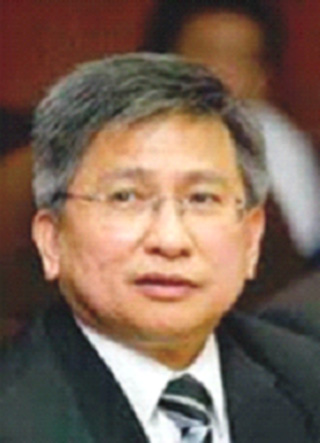Native Court system must be independent, says Malanjum
Published on: Tuesday, May 30, 2017

Kota Kinabalu: Chief Justice of Sabah and Sarawak, Tan Sri Richard Malanjum, has expressed hope that the Native Court system will be out of the hands of state executives.He stressed that it is important for the institution to be independent, particularly when it concerns the appointment of community leaders."I'd like to see the day will come," he said in his keynote address at the Majlis Jaksa-Jaksa Pendamai (Majaps) and Sabah Law Association (SLA) seminar themed "Justice and Rights – The Way Forward", here, Monday.
ADVERTISEMENT
He said as an independent body, no state executives or politicians can meddle in its affairs."YBs (Yang Berhormat) should not be involved in who should become a (native) chief (and) Ministers should not be involved in who should be a district chief. This is important," he said.He lamented, however, that this has not been the practice in some cases, causing blurred lines between the service to the "adat" and political interest."With all due respect, some of the native chiefs are more politicians than (being) native chiefs. And if you're not on the same line with them politically, you're dead meat. That's not fair. So I think we need to change this," he said.
ADVERTISEMENT
On this note, Malajum reiterated his call for the Native Court in Sabah and Sarawak to be elevated on par with the civil and Syariah courts."If you look at the constitution, what we have now is the civil and Syariah court system of justice in Malaysia.
ADVERTISEMENT
There should be a third system, which is the indigenous court system, which has the same standing as the civil and Syariah laws. We want the system to be in the Constitution to cater far native laws. At the moment, the Native Court is controlled by the executives," he said.Malanjum has been a strong proponent of the third system, having on various occasions spoken up on the need to set it by virtue of the three to four million indigenous population in both East Malaysian states who are still practising their "adat" and customs.He was once reported as saying that the Native Court was still relevant today to ensure as custodians, the survival of the customary laws handed down from generations.The recognition of the Native Court as the third justice system, he said, will effectively release it from the control of the executive and politicians alike."With the third system, we will have a commission to appoint native chiefs. It will be independent and respected. That's how it should be," he said. He noted that the third system was the grand plan of long serving former Attorney General of Malaysia, Tan Sri Ghani Patail, and effort towards making it a reality had reached 80 per cent.He urged Ghani and State Attorney General Datuk Mariati Robert to continue picking up the matter while making the same call on Majaps and the SLA to help pushing it. Speaking in jest, Malanjum said the Government might make a pledge to make it happen in view of the general election mood.He noted that Malaysia can learn from Papua New Guinea that has successfully established its third system in the judiciary.Meanwhile, Ghani, when met, said there is actually already a third system as the Native Court is recognised by the Constitution."It's already there. It's just that you don't have the proper system and structure yet. The Native Court needs to formalise this first. It has to fortify the system and that's what we were doing as what Tan Sri Richard has said about the 80 per cent. I think they're still doing it," he said.Federal Minister Datuk Seri Dr Maximus Ongkili, who chairs the Technical Committee on Bumiputera Minorities of Sabah and Sarawak, also confirmed the recognition of the Native Court by the constitution but said more work is still needed to empower it to be parallel with the civil and Syariah justice systems. He said while it is a State matter, the Federal Government has been supporting efforts to raise its level, including the provision of funds.Stay up-to-date by following Daily Express’s Telegram channel.
Daily Express Malaysia




